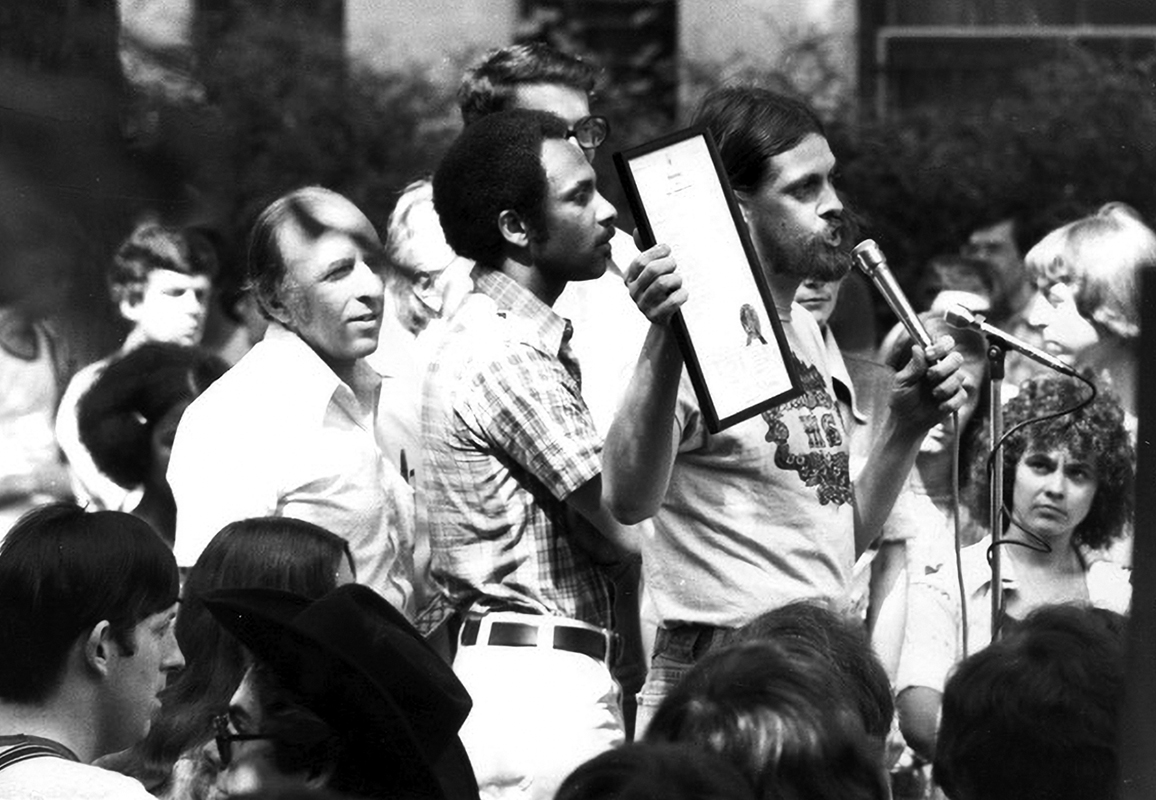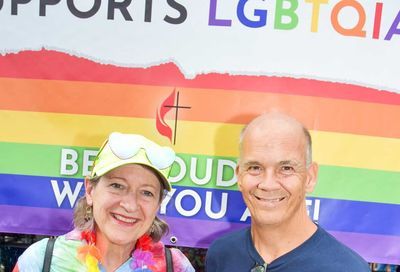Relocation Reloaded
After acrimony and jockeying, Council moves to help displaced clubs
Councilmember Jim Graham’s (D-Ward 1) legislation to help nude-dancing, liquor-licensed venues displaced by they city’s eminent-domain move to claim District land for a new baseball stadium took a large step forward on Tuesday, June 5, during the City Council’s legislative meeting.
In its most base form, the debate seemed to pit the openly gay Graham in one corner, advocating for nude-dancing establishments catering primarily to gay men, forced into a neglected corner of the city decades ago, where they flourished. In the other corner, newly elected Councilmember Harry Thomas Jr. (D-Ward 5), was seen as the defender of his constituents who worried that the clubs in question had already carved out sections of Ward 5’s Trinidad and Ivy City neighborhoods to create a new ”red light district” on their doorsteps at Graham’s urging.
In reality, Ward 5 residents are not at all uniform in opposition to these venues. Nor is there anything in Graham’s legislation that sends them to Ward 5, which simply has the choicest pickings in terms of low-rent commercial zones that could potentially accommodate these businesses. Further, there is nothing in Graham’s legislation that guarantees relocation for the affected businesses.
But in the end, this contentious debate moved forward with a 9-4 vote in favor of Graham’s bill, with six amendments proposed by Thomas and accepted by Graham without debate.
”There was a certain amount of disharmony occurring here,” Graham told the Council and its audience. ”Now there is an opportunity for harmony. I want to make clear that without this legislation, these clubs could go nowhere. … However you may feel about this brand of entertainment, these are legal businesses in the District of Columbia. … There is at long last a resolution to a problem that’s existed now for about 18 months.”
While Graham’s bill, as written, was to allow a one-time relocation of liquor licenses for the affected businesses from their original zones — such as a commercial manufacturing zone, or CM — to any other similarly marked zone in the District, Thomas’ amendments guarantee that even if the clubs in question relocate, they won’t be clustered in Ward 5.
Together, the six amendments will, with minor exceptions, limit transfers to two per ward; establishes a buffer of 1,200 feet between venues; allows CM-zoned licensees to transfer to particular commercial zones within 5,000 feet of the new stadium; establishes a 600-foot buffer between any of these businesses and any church, school, library, playground, ”or areas under the jurisdiction of the Commission of Fine Arts;” requires licensees to discuss entering into voluntary agreements with the affected Advisory Neighborhood Commission, though does not demand any agreements be crafted; and allows the Office of Planning to complete certain studies regarding city growth, no later than Nov. 1, prior to any transfers.
The members of the Council with nearly universal zeal, praised the process by which Graham and Thomas hammered out this deal.
”In my view, this is government at its best,” offered Councilmember Marion Barry (D-Ward 8), and asking Ward 5 residents who attending the proceedings to stand and be recognized. ”All of us took this issue very seriously, with hours talking back and forth. … [These businesses] were moved for an ill-conceived idea called a baseball stadium, and they shouldn’t suffer for that. [This compromise is] a win for the city, a win for the people and a win for people who want that kind of entertainment.”
Echoing the tensions of public debate leading up to Tuesday’s Council meeting, with charges of homophobia, class warfare and the rest, Chairman Vincent Gray (D-At large) had to quiet a heckler as Councilmember Carol Schwartz (R-At large) reflected on her own commitments to the licensees.
”I was one of those people who committed to help them find other locations within our city,” said Schwartz. ”When I saw that all of them were going to one part of the city, I didn’t sign-on to that. … This isn’t a gay or straight issue. It has nothing to do with that. And no one needed to personalize this debate.”
With praise for Thomas’ amendments and the spirit of compromise expressed by him and Graham, Schwartz pledged an ongoing commitment to help the displaced businesses relocate. Despite the favorable vote and the fact that one business dislocated by the stadium — an adult-oriented theater with no liquor license — has managed to reopen in Ward 5, the future of the liquor-licensed establishments, such as Secrets/Ziegfeld’s or Wet, still remains to be seen.
Those voting in favor of the relocation bill were: David Catania (I-At large), Mary Cheh (D-Ward 3), Jack Evans (D-Ward 2), Graham, Gray, Phil Mendelson (D-At large), Schwartz, Tommy Wells (D-Ward 6) and Barry. Voting against were: Muriel Bowser (D-Ward 4), Kwame Brown (D-At large), Thomas and Yvette Alexander (D-Ward 7).
Support Metro Weekly’s Journalism
These are challenging times for news organizations. And yet it’s crucial we stay active and provide vital resources and information to both our local readers and the world. So won’t you please take a moment and consider supporting Metro Weekly with a membership? For as little as $5 a month, you can help ensure Metro Weekly magazine and MetroWeekly.com remain free, viable resources as we provide the best, most diverse, culturally-resonant LGBTQ coverage in both the D.C. region and around the world. Memberships come with exclusive perks and discounts, your own personal digital delivery of each week’s magazine (and an archive), access to our Member's Lounge when it launches this fall, and exclusive members-only items like Metro Weekly Membership Mugs and Tote Bags! Check out all our membership levels here and please join us today!

























